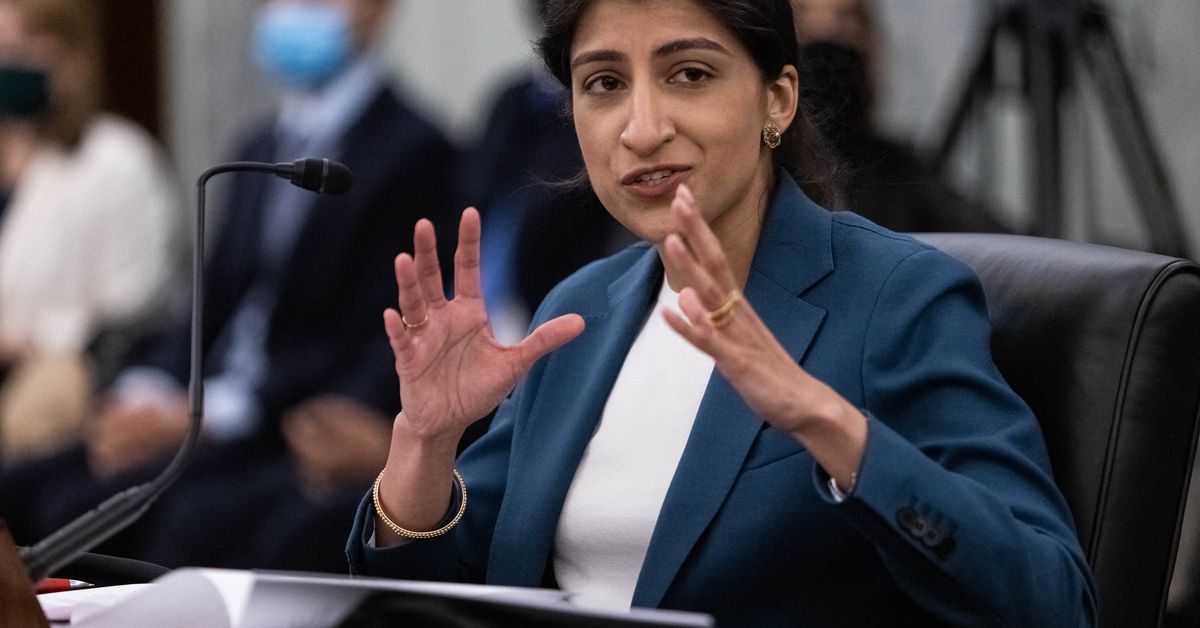
In a surprise decision Tuesday, President Joe Biden tapped Lina Khan, one of the most prominent critics of Big Tech, to lead the Federal Trade Commission. In that role, Khan will have the authority to guide the FTC’s agenda — and it’s fair to assume she’ll be taking a hawkish stance toward Big Tech.
The move is already spooking industry groups, with the conservative Open Competition Center warning Khan would use “antitrust law as a Trojan horse to advance woke goals and policy priorities” — and the tech-backed ITIF saying her agenda would cause “lasting self-inflicted damage” to the country.
But it isn’t just Khan who has the tech industry raising the alarm. Khan’s position at the FTC is just one part of a multipronged antitrust effort from the US government — an effort that’s proceeding along largely bipartisan lines. After years of posturing and confusion, a bipartisan consensus on tech antitrust is finally taking shape across Congress, the Department of Justice, and the FTC — with unpredictable consequences for targets like Facebook and Google.
Last week, the House Judiciary Committee released a slate of bipartisan bills to chip away at tech’s power, including measures that would empower the FTC and Justice Department to break up tech firms by forcing them to sell off parts of their businesses that could create conflicts of interest. On Wednesday, Chairman Jerry Nadler (D-NY) went further, saying that the committee would take quick action to move forward on the bills, saying that the package could be marked up as early as next week.
Once approved by the committee, the bills would face a vote on the full House floor.
There’s also a bipartisan movement in the Senate to pass similar reforms. At a hearing on competition in the smart home market Tuesday, Sen. Amy Klobuchar (D-MN) praised the House’s efforts. Earlier that day, Klobuchar told Politico that she would begin work to introduce companion bills in the Senate.
“We need to use all the tools of government”
In a Congress that loves to stall radical change, largely due to the filibuster, these sweeping competition reforms are picking up an unusual amount of momentum. At Wednesday’s House press conference on the package, lawmakers from both sides of the aisle — including the most progressive and conservative parts of the parties — called on their colleagues to support the measures. Khan’s nomination was approved bipartisanly in the Senate as well, suggesting there could be broad consensus on these reforms in the upper chamber.
That consensus is important for Khan, too, since the FTC can’t push forward on her aggressive agenda without help from Congress. The FTC is still relatively weak in comparison to the large tech firms it’s seeking to regulate, with less than $350 million a year compared to the billions that companies like Facebook can spend to protect their business. It will take a full-court press approach from every branch of the government to take on Big Tech, competition experts say.
“We need to use all the tools of government, and actually add some new tools, to get at this problem,” Charlotte Slaiman, competition policy director for Public Knowledge, told The Verge Wednesday. “It’s going to require action at the FTC, Congress, and the DOJ.”
Still, the Biden administration is dragging its feet when it comes to beefing up the Justice Department. Even though Attorney General Merrick Garland was praised by tech critics for his antitrust experience, Biden has yet to nominate anyone to lead the department’s antitrust division. Earlier this year, The Intercept reported that two attorneys who previously advised tech companies could be tapped for the role.
For now, the FTC has a majority of Democrats at the commission, but this could change in the coming days and weeks. Democratic Commissioner Rohit Chopra was nominated to lead the Consumer Finance Protection Bureau, and once confirmed for the role, the agency would be deadlocked yet again. This creates a small window for Khan to take aggressive action before a third Democrat could be confirmed at the agency.
